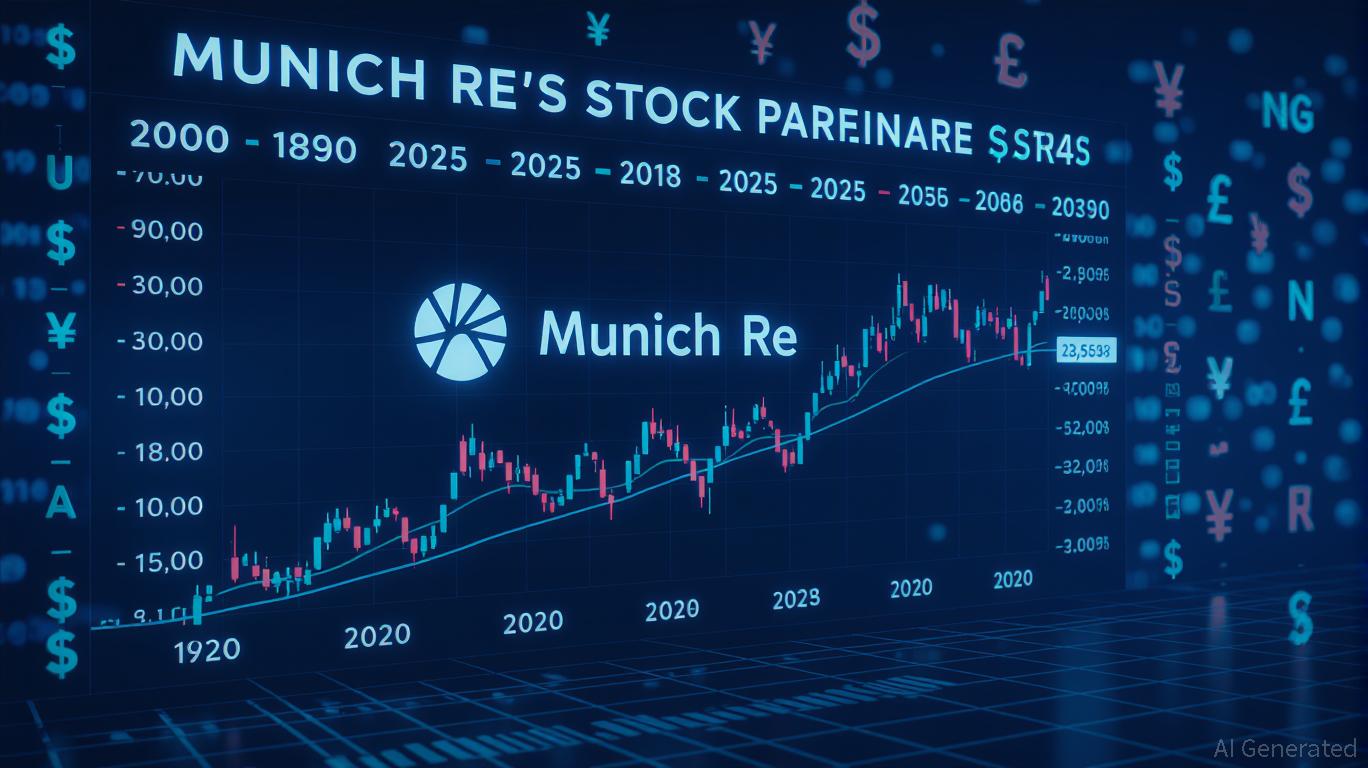
In an era where climate change is reshaping global risk landscapes, reinsurance has emerged as a critical defensive asset class. Munich Re, a titan in the reinsurance sector, exemplifies how strategic resilience and underwriting discipline can transform climate-related challenges into long-term value creation. As 2025 unfolds, the company’s financial performance and proactive risk management strategies underscore its appeal for investors seeking stability in volatile markets.
Climate-Driven Catastrophe Losses: A New Normal
The first half of 2025 saw global natural disaster losses reach US$131 billion, with insured losses hitting a record US$80 billion—second only to the 2011 Japan earthquake and tsunami. Wildfires in Los Angeles alone caused US$53 billion in total losses, with US$40 billion insured. Munich Re attributes these trends to climate change, which is extending fire seasons, intensifying storms, and altering seismic patterns. For investors, this signals a structural shift: as insured losses rise, so does the demand for reinsurance capacity to absorb these risks.
Munich Re’s Financial Fortitude
Despite these pressures, Munich Re delivered a net result of €2.1 billion in Q2 2025, contributing to a half-year net result of €3.2 billion—well on track to meet its annual guidance of €6 billion. Key metrics highlight its resilience:
– Property-casualty reinsurance achieved a combined ratio of 61.0% of net insurance revenue, down from 73.7% in 2024, reflecting disciplined underwriting.
– Global Specialty Insurance (GSI) improved its combined ratio to 77.9%, up from 93.6% in 2024, driven by selective portfolio adjustments.
– Major-loss costs in Q2 2025 were -€87 million after retrocession, a stark contrast to €644 million in 2024, thanks to favorable claims reserves and reduced natural catastrophe losses.
Munich Re’s 25.5% annualized return on equity (RoE) in Q2 2025, though down from 20.2% in 2024, remains robust, outperforming many peers in the insurance sector.
Strategic Adaptation to Climate Realities
Munich Re’s success lies in its proactive approach to climate risk. The company has:
1. Enhanced Risk Modeling: Incorporating long-term climate trends and natural variations like El Niño into underwriting decisions.
2. Invested in Prevention: Partnering with the Institute for Business and Home Safety (IBHS) to promote fire-resistant construction and disaster-resilient infrastructure.
3. Optimized Pricing: Declining business with inadequate pricing in Q2 2025, resulting in a 3.2% volume decline in the reinsurance portfolio but maintaining a 1.2% price decline across key renewals.
These strategies not only mitigate exposure but also position Munich Re to capitalize on the growing reinsurance demand.
Reinsurance as a Defensive Asset Class
Reinsurance’s inherent defensiveness—its role in stabilizing primary insurers during crises—makes it a compelling long-term investment. Munich Re’s €62 billion projected total insurance revenue for 2025 (vs. €64 billion guidance) reflects its ability to balance growth with risk. For investors, the company’s alignment with the Paris Agreement (setting science-based climate targets by 2050) adds a layer of ESG credibility.
Investment Thesis: A Long-Term Hold
Munich Re’s resilience amid climate-driven volatility positions it as a cornerstone for portfolios seeking defensive exposure. Key catalysts include:
– Rising Insured Losses: Projected to grow as climate risks intensify, driving demand for reinsurance capacity.
– Operational Efficiency: Improved combined ratios and cost management enhance margins.
– Strategic Renewals: A focus on high-quality business ensures sustainable growth.
However, risks remain, including foreign exchange volatility (evident in Q2’s -€602 million currency losses) and potential regulatory shifts. Investors should monitor Munich Re’s capital resilience disclosures and its ability to adapt to evolving climate models.
Conclusion
As climate change accelerates, reinsurance is transitioning from a niche sector to a strategic asset class. Munich Re’s blend of financial strength, innovation, and climate foresight makes it a standout play. For investors prioritizing long-term stability in a high-impact macro environment, Munich Re offers a compelling case: a company not just surviving, but thriving, in the face of global uncertainty.
